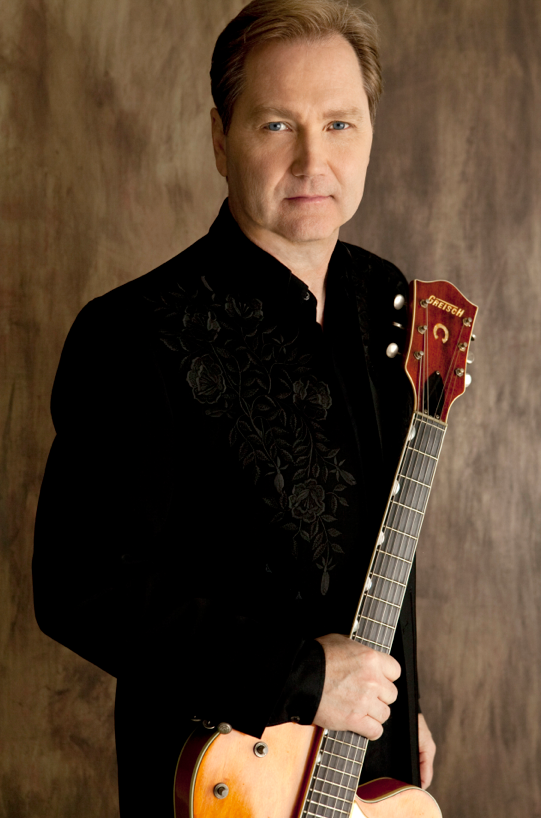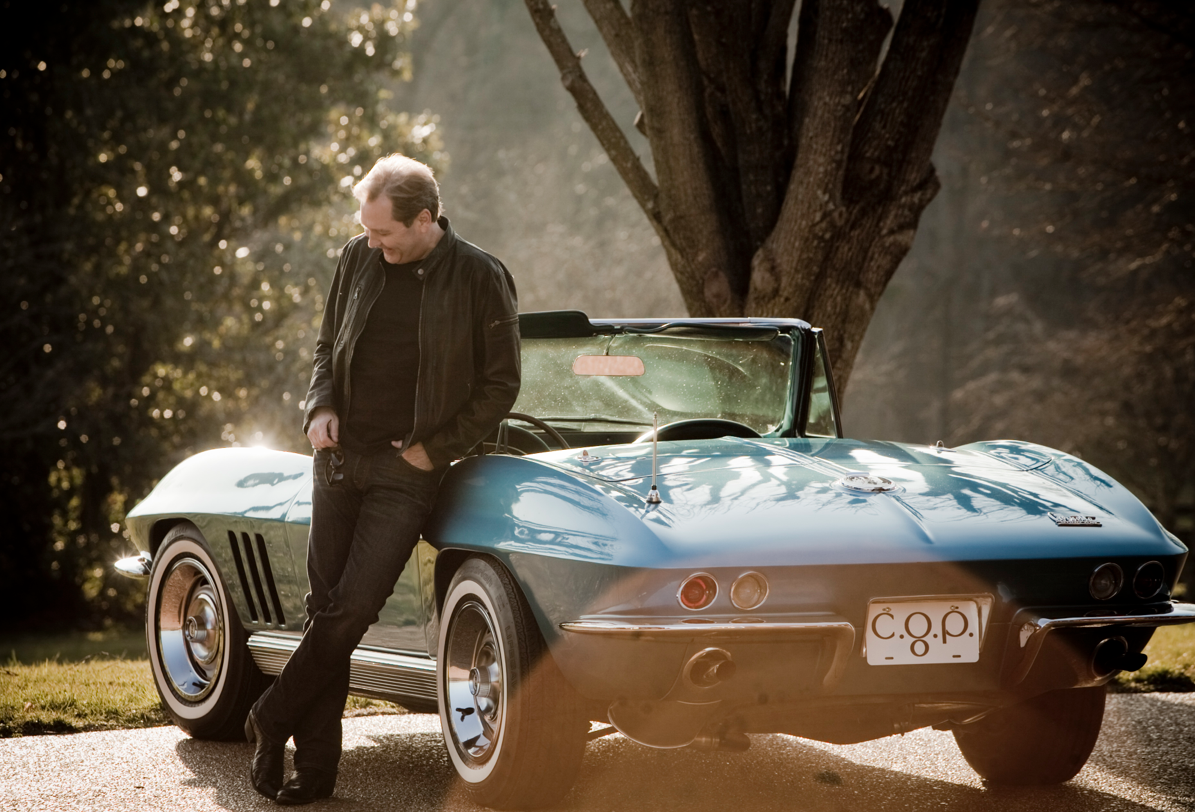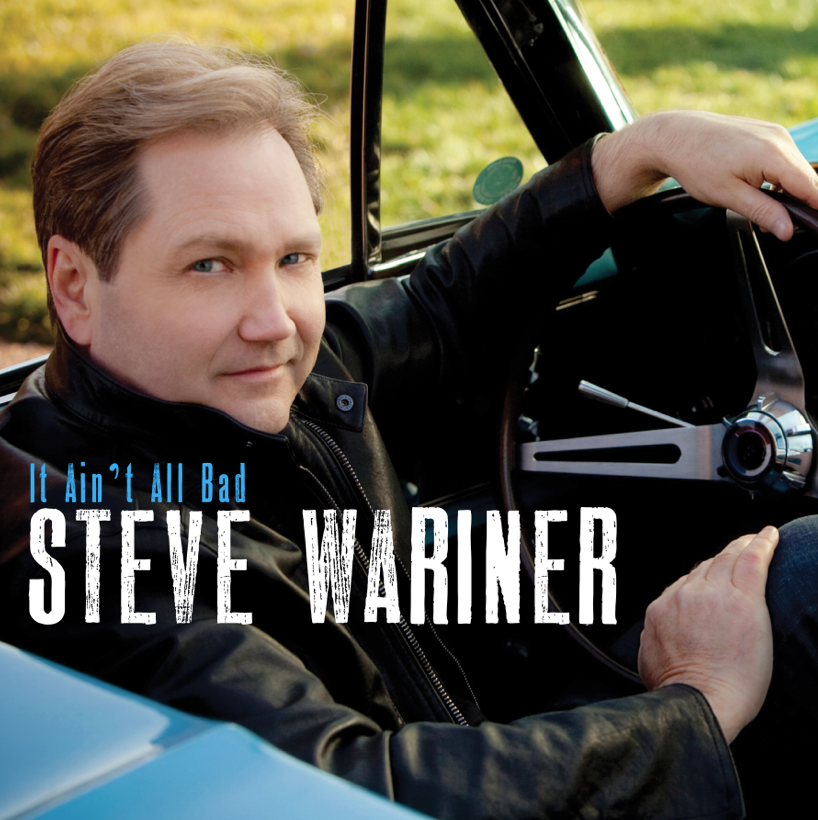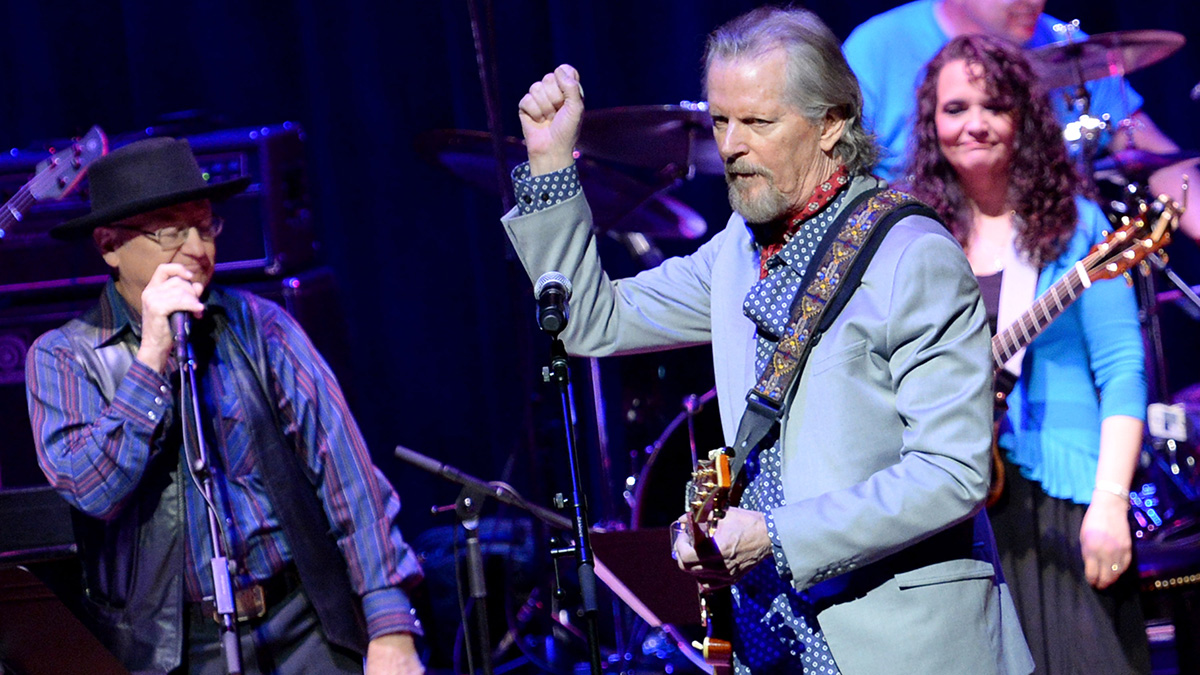Interview: Guitarist Steve Wariner Discusses His New Self-Produced Album, 'It Ain’t All Bad'

He’s an award-winning singer, songwriter and recording artist, a virtuoso guitarist and one of the most respected and well-loved musicians amongst his peers.
Steve Wariner, who has charted close to 30 Top Ten country hits, including 14 at No. 1, has just released It Ain’t All Bad, his first non-instrumental album in almost eight years.
It’s an all-inclusive project, in that he wrote or co-wrote all of the tracks, produced them and is releasing it on his own label, SelecTone Records.
Wariner grew up in Indiana and began playing music professionally at an early age. As a youngster, he played drums in his father’s band, played bass in cover bands and toured as a singer/bass player with Dottie West, and then Bob Luman, before joining Chet Atkins, who signed him to his first recording contract.
Nashville led him to collaborate and perform with a long list of talent, including Glen Campbell, Vince Gill, Brad Paisley and Ricky Skaggs. Over the years, he amassed four Grammy awards and a total of 11 nominations.
In this interview, he discusses the global reach of country music, the role of social media in expanding the genre’s popularity, taking control of all aspects of his music, and the closely knit relationships amongst Nashville’s musical elite.
GUITAR WORLD: First of all, how was NAMM?
Get The Pick Newsletter
All the latest guitar news, interviews, lessons, reviews, deals and more, direct to your inbox!
Oh, it was fantastic! I hosted the Top 100 Dealer Awards show, and I didn’t really get to see NAMM other than that. But I had a blast doing that. I had a killer band with me, with a horn section, so my NAMM was great. I spent the whole day working on that show and it was fantastic. NAMM is the Mecca, and we have a new convention center, so that was really cool. Randy Gardner, the engineer that works with me, spent an hour and a half looking at the gear, but I was doing an interview with a guy from the Czech Republic, so I didn’t even get to look at stuff. I wanted to!
From the Czech Republic? When you think about having that kind of reach with your music, has it always been so widespread, or is it the result of technology making your music so much more accessible on a global level?
Isn’t that amazing? He knew more about me than I did! I think in my case it’s a combination of the new world we’re in, with social media, but it also collides with me being around forever. When we toured Europe several years ago, we did a show in Poland, and they were after me to — and I use air quotes here — “teach a guitar class” at a college.
I was amazed that anybody there knew who I was. I would equate it to a community college; they were young adults and it was 99 percent guys. No one could really speak English, and every now and then I’d hear “Chet Atkins” or “Albert Lee.” They were asking me about those people. Another good example is a few years ago I did a little guitar Christmas project [Guitar Christmas, 2003] that we weren’t going to market. We just put it up on the Web.
We turned the machines on and I recorded with no accompaniment, no bells and whistles. I used different guitars for each song. It started out to be for friends at Christmas, but when we finished, it turned out pretty cool, so we made it available on the website with no promotion of any type, just word of mouth.
By the next Christmas, we were getting orders on our website from Japan, France and England, in addition to all over the US. We were astounded. Every year around Thanksgiving we get orders for that album. Finally we pressed it and put it in stores. That has to be social media. How else do they know about it? We never promoted it. Every year I can’t wait to see where the orders come from. That speaks to how wide-reaching social media can be.
In addition to owning the record label, you produced the album. According to your colleague Sam Bush, the advantage to that is that the producer always wins, but at the same time, he has to listen to the lead singer, and he’s both. In addition to always winning, what are the challenges that come with doing everything?
Sam is exactly correct in that the good news is you’re the head guy, they’re all your decisions, and you’ll be the last one standing. The bad news is that you’ll be the last one standing! I don’t know that it’s a great situation for every artist, and I include myself.
There’s no question that when I sat in front of Chet, playing a part, if he was producing, I would play and sing differently than when I do it myself. More times than not, I’m by myself in the studio. I’m engineering it and doing it all, and I listen to the playback and make a decision that, “Yes, that’s the one. That’s the take.” Sometimes you stop and think, I hope I’m right about that. I hope that is the take.
Chet may have said, “I think you’ve got one more in you better than that. Get in there and let’s see what you’ve got.” The whole thing with two heads is good too. He or [producer/Capitol Records Nashville president] Jimmy Bowen or somebody would say, “Try a different approach. Go this way.” You try it and, “Oh my god, that’s just what I wanted!” You don’t have that when it’s just you, so I try to be really careful. My biggest challenge as a producer is trying to wear a lot of hats, and there’s a lot of money you’re dealing with when you have a whole room full of players. For example, when I was recording this album, especially on the stuff that I play on as it goes down, that’s the most tricky for me.
Sometimes I’ll overdub my parts after everybody goes home, but when I play on stuff, I have to walk into this control room and listen with wide ears. I’m listening to everything. It’s got to be the right drum, the right bass, and when they leave, it’s all over with unless you hire them and bring them back in, so you’ve got to make sure that that is the one. Everybody’s looking at you like, “Is this the take or not?” You have to be really focused. I think that’s why when I get done with an album, I come home, fall on the bed and pass out for about two days, because I’m so intensely focused on everything — drum sounds, bass sounds, every little thing — and I’m not sure that’s always a great thing for every artist.
A lot of times it’s good to have somebody else cracking the whip on you a little bit. But I really enjoy that challenge and I love creating and arranging on the fly. Something about it gets me going. I paint a little bit, too, so my analogy is that it’s almost like throwing paint on canvas. When you come up with something creative off the cuff, it’s like, “Wow, man, that’s so cool. Look at what we just did. We didn’t even try. It just happened.” Those little happy mistakes sometimes are just awesome.
Another advantage of owning the label and the studio: There’s no suit coming in and reminding you about budget. You can consume as much time as you like.
I remember being so frustrated at a producer when the suit guys came along with the stopwatches. The minute the song started, they were timing how long until the chorus comes in and then trying to change it. You can’t change that. The song is written and structured.
But they’re looking at it strictly from a radio business point of view, you’re looking at it like a performance, and that’s where the two worlds collide. There’s an old saying I love, “Try not to stir the batter so much that the biscuits won’t rise.” It’s true. That’s what happens in a lot of cases. They’ll have you go and go, over and over, and finally everyone is so sick of the song that they want to move on to something else. There’s nothing left because you’ve sucked all the life out of it.
There are so many YouTube videos with all-star jams at the Opry and other places. What creates that sense of community in Nashville and what are those events like for you? Aside from bringing the A-game, how do they push you musically?
You probably do have to bring the A-game, but that’s what the Opry’s always been about. When you look at old pictures, you see all these pickers playing together and having fun. I think it’s inbred; it’s just there. It’s what we’ve always been, and I love that. Everybody gathers around and it’s a family kind of thing. I love to do those things. A while back, they called and said there was going to be a jam with Keith [Urban], Brad [Paisley], Ricky Skaggs and Marty Stuart. We’ve done several configurations of those things. I did one at the Ryman that was me and Vince [Gill] and Brad and Ricky and on and on. It’s so much fun.
I would venture to say that other than getting there, getting in your dressing room and playing a little bit, you look at it like a regular Opry thing. I usually warm up like a typical Opry night. If I play at 8, I get there at 7, go to my dressing room and start playing. When it’s time to go on, they say, “You’ve got 10 minutes,” and then we go play. I guarantee that’s what everybody does. They’re all great players, so it’s another day at the office.
That’s what I love about it — it’s what we do. The beautiful thing is that everybody is so good and all those guys are having so much fun. It’s not the typical show where you play your set list. Everybody’s smiling, and oh my gosh, it’s fun, we’re throwing it around, now so-and-so’s going to play one. It’s buddies getting together. That’s really what it is.
Read more of Steve Wariner’s interview, including a track-by-track for It Ain’t All Bad, HERE.
— Alison RichterAlison Richter interviews artists, producers, engineers and other music industry professionals for print and online publications. Read more of her interviews right here.




Alison Richter is a seasoned journalist who interviews musicians, producers, engineers, and other industry professionals, and covers mental health issues for GuitarWorld.com. Writing credits include a wide range of publications, including GuitarWorld.com, MusicRadar.com, Bass Player, TNAG Connoisseur, Reverb, Music Industry News, Acoustic, Drummer, Guitar.com, Gearphoria, She Shreds, Guitar Girl, and Collectible Guitar.
“The best guitar player I ever heard”: Nashville guitar extraordinaire Mac Gayden – who worked with Bob Dylan, Elvis, Linda Ronstadt and Simon & Garfunkel – dies at 83
“I’ve never bought a guitar and I’m quite proud of that! I always tell people when they’re learning: there’s a guitar not being played”: Meet Sacred Paws’ Ray Aggs, the dextrous Tele-wrangler inventing new chords and capturing Thurston Moore’s imagination









